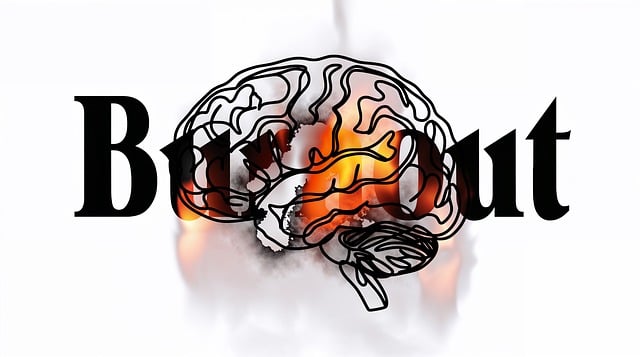Mental health disorders range from common issues like anxiety and depression to severe conditions such as schizophrenia or bipolar disorder, requiring understanding and tailored treatment. Diagnosis is a crucial step, followed by evidence-based therapies like cognitive-behavioral therapy (CBT) offered by Arvada Phobias Therapy for specific fears. Personalized care involves therapeutic methods, support groups, and lifestyle changes, with mindfulness and exercise aiding self-care. Public awareness and trauma support services destigmatize mental illness, while ongoing support from professionals ensures long-term benefits for effective mood management and anxiety relief.
“Mental illness diagnosis and treatment navigation can be a daunting journey. This comprehensive guide aims to demystify mental health disorders, offering an insightful overview for those seeking understanding. From recognizing symptoms to unlocking the path to personalized care, we explore the diagnosis process and highlight innovative treatments like Arvada Phobias Therapy. Additionally, we delve into effective self-help strategies and ongoing support, empowering individuals to build resilience and navigate their treatment options successfully.”
- Understanding Mental Health Disorders: A Comprehensive Overview
- The Diagnosis Process: Unlocking the Path to Treatment
- Arvada Phobias Therapy: Effective Strategies for Overcoming Fear
- Navigating Treatment Options: Personalized Care and Support
- Building Resilience: Self-Help Techniques and Ongoing Support
Understanding Mental Health Disorders: A Comprehensive Overview

Mental health disorders encompass a wide range of conditions that affect an individual’s emotional, psychological, and social well-being. These disorders can manifest in various forms, from common yet manageable issues like anxiety and depression to more severe and complex conditions such as schizophrenia or bipolar disorder. Understanding these disorders is the first step towards effective navigation of diagnosis and treatment.
Arvada Phobias Therapy, for instance, focuses on specific fears or anxieties that significantly impair daily functioning. Mental Health Policy Analysis and Advocacy plays a crucial role in shaping public perceptions and improving access to care. The Mind Over Matter principles emphasize self-care and resilience as integral parts of mood management. Effective navigation involves demystifying these conditions, challenging stigmas, and providing resources for timely diagnosis and evidence-based treatment options tailored to individual needs.
The Diagnosis Process: Unlocking the Path to Treatment

The diagnosis process for mental illness is a crucial step that paves the way for effective treatment and recovery. It often begins with an individual sharing their symptoms and experiences with a healthcare professional, such as a psychologist or psychiatrist. Through comprehensive assessments, including detailed discussions about thoughts, feelings, behaviors, and potential triggers, these professionals gain insights into the patient’s mental health landscape. This initial conversation is pivotal in unlocking the path to tailored treatment options.
Arvada Phobias Therapy, for instance, focuses on addressing specific fears and anxiety disorders. By employing evidence-based techniques like cognitive-behavioral therapy (CBT), healthcare providers help individuals confront and manage their phobias. This therapeutic approach not only enhances confidence but also plays a significant role in reducing the impact of mental illness stigma and promoting effective stress reduction methods.
Arvada Phobias Therapy: Effective Strategies for Overcoming Fear

Arvada Phobias Therapy offers a range of effective strategies to help individuals overcome specific fears and phobias. By employing evidence-based techniques, such as cognitive behavioral therapy (CBT), therapists assist clients in understanding and changing unhelpful thought patterns and behaviors associated with their phobias. CBT helps individuals face their fears in a safe, controlled environment, gradually reducing anxiety over time.
In addition to CBT, Arvada Phobias Therapy may incorporate other therapeutic approaches like mindfulness meditation for stress reduction and self-esteem improvement. Regular practice of mindfulness can help individuals stay grounded in the present moment, reducing the power their phobias hold over them. Together with professional guidance, these strategies empower clients to manage their symptoms, improve their quality of life, and develop resilience in navigating future challenges related to their mental health.
Navigating Treatment Options: Personalized Care and Support

Navigating treatment options is a crucial step for anyone seeking help for mental health concerns. Personalized care recognizes that each individual’s experience with mental illness is unique, and their journey to recovery should be tailored accordingly. This means going beyond one-size-fits-all approaches and considering various therapeutic methods, support groups, and lifestyle changes that align with the person’s specific needs. For instance, those dealing with phobias in Arvada might benefit from specialized therapy focusing on exposure and response prevention, while others struggling with depression could find relief through a combination of medication and cognitive-behavioral therapy.
A comprehensive support system is integral to successful treatment. This includes access to mental health professionals, peer support groups, and community resources. Public awareness campaigns play a vital role in destigmatizing mental illness, encouraging individuals to seek help without fear of judgment. Additionally, trauma support services are essential for those with historical traumas, offering specialized care that respects their unique challenges. By fostering an environment of understanding and accessibility, these measures ensure that personalized care and support are within reach for everyone navigating their mental health journey.
Building Resilience: Self-Help Techniques and Ongoing Support

Building resilience is a crucial aspect of managing mental illness, and self-help techniques play a significant role in this process. Individuals can empower themselves by adopting certain practices that aid in coping with symptoms and improving overall well-being. One effective strategy is practicing mindfulness, which involves being fully present in the moment and acknowledging thoughts without judgment. This simple yet powerful technique has been shown to reduce anxiety and enhance mood management, especially when combined with regular exercise and a balanced diet.
Moreover, seeking ongoing support from various sources is essential for sustained mental health. Joining support groups or engaging in therapy sessions, such as those offered by Arvada Phobias Therapy, can provide a safe space to share experiences and learn valuable coping mechanisms. These platforms foster a sense of community, reduce the stigma associated with mental illness, and offer long-term benefits, ensuring individuals have access to resources for effective mood management and anxiety relief.
Mental health journeys are unique, but with the right navigation, individuals can unlock a path to improved well-being. From understanding disorders to accessing tailored treatments like Arvada Phobias Therapy, each step offers hope and healing. By combining professional care with self-help techniques, one can build resilience and embrace a brighter, more balanced life. Remember, navigating mental health is a process, and personalized support is key to achieving lasting positive outcomes.










